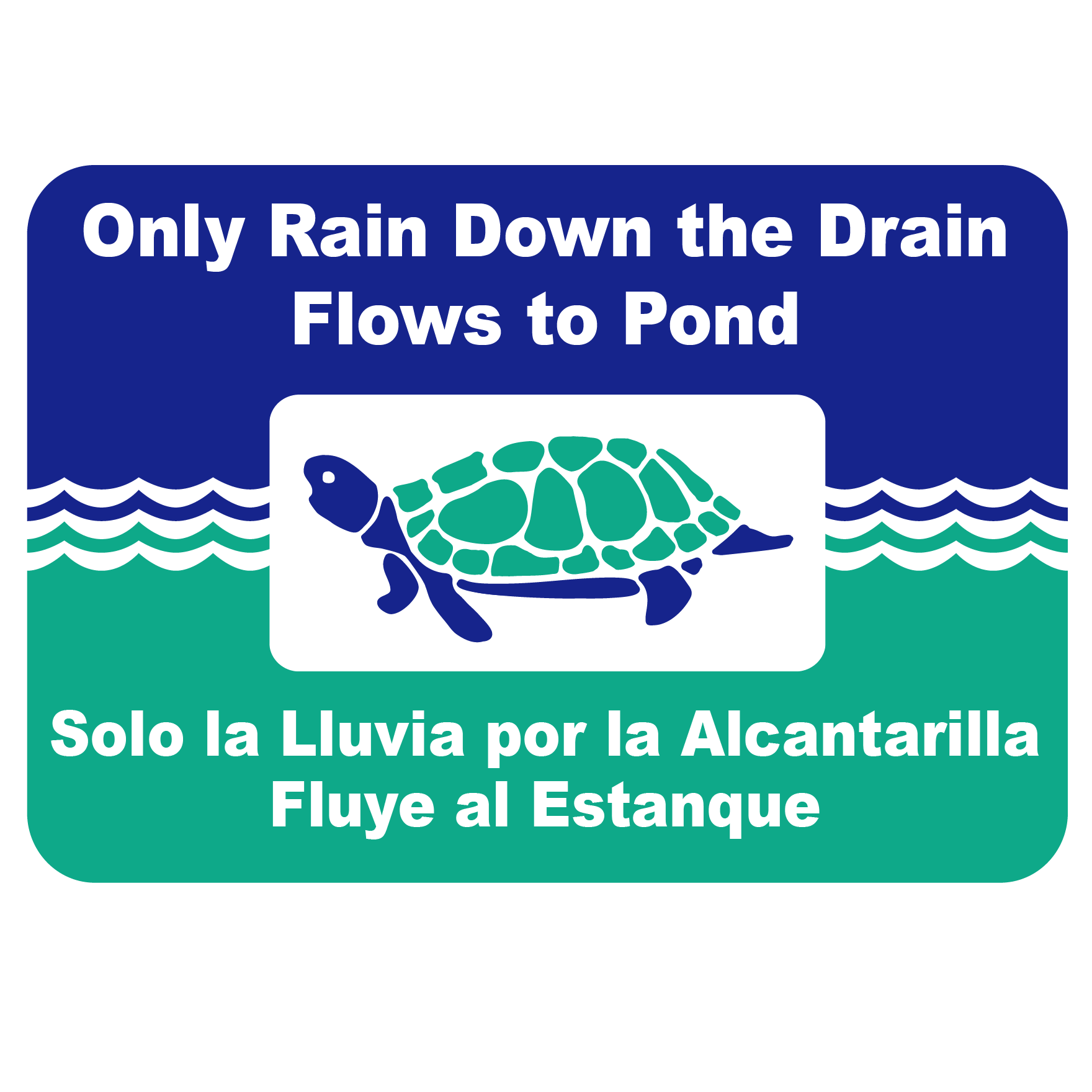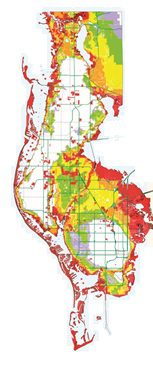Environmental and Flood Information For New Residents and Businesses
Small actions on your part can have a big impact on your safety and Pinellas County waterways. If you are a new property owner in Pinellas County, then there are a few things you can do right now to keep our natural areas clean and to make sure you are physically and financially prepared for a flood.
- Understand how your activities affect stormwater runoff and our waterways.
- Prepare for a flood. Look up your flood risk and make small changes that can protect your property or business.
- Purchase flood insurance.
- Protect our natural areas.
- Remove opportunities for mosquitos to increase their population.
Only Rain Down the Drain
Rain can fall any day in Pinellas County. Rainwater that flows over the ground is called stormwater runoff. Runoff flows into stormwater drains and through pipes, ditches, creeks, wetlands and ponds all over the county. Eventually, it flows out to the Gulf of America or Tampa Bay—and any trash, yard waste, pet waste or pesticides goes right along with it. Unlike toilet, sink or shower water, stormwater runoff does not go to the sanitary sewer treatment plant.
We all live, work and play in a watershed. You can make a big difference by taking a few simple actions.
- Make sure only rain goes down the drain. Keep lawn waste and trash out of the streets, streams and ditches.
- Follow the Florida-Friendly Landscaping™ principles.
- Abide by countywide fertilizer bans and regulations. Minimize application of all chemicals.
- Pick up and properly dispose of animal waste.
- Do not wash cars in the driveway or street. Go to a car wash facility, or wash your vehicle on the grass to allow infiltration.
- Do not discharge pool water directly into the storm drain. Let it drain into the grass.
Prevent pollution and flooding at the same time. If storm drains and pipes or ditches get blocked, then the stormwater will build up and cause flooding. Keep debris from running off your property, and remove debris from drain inlets if it is safe to do so.

Report Violations
Allowing anything but stormwater to runoff a property and into storm drains may be punishable by fines.
Report violations online at or by calling (727) 464-5060 anytime.
Know Your Flood Risk
Heavy rains, tropical storms and hurricanes can all cause flooding.
What You Can Do

- Determine your flood risk and know your evacuation zone.
- Find out how much flood damage could cost you.
- Purchase flood insurance for your home, business or rental property.
- Elevate your equipment, such as water heaters, air conditioning units, etc.
- Hire a licensed contractor to make building improvements.
- Make a plan.
- Stay informed. Sign up for AlertPinellas.
Flood Insurance Discounts
Make sure that your flood insurance policy is rated correctly and that you are receiving the correct discounts. Because Pinellas County and most of its municipalities have proactive floodplain management programs and participate in the National Flood Insurance Program Community Rating System (CRS), residents and businesses may be eligible for a CRS discount up to 25 percent or a discounted Preferred Risk Premium. These discounts save residents and businesses in unincorporated Pinellas County more than $5 million dollars per year on their flood insurance premiums.
Pinellas County flood insurance advocates are available to answer questions. To learn more visit our Flood Information page.
Protect Natural Areas
Pinellas County maintains more than 20,000 acres of parks and preserves. There are wetlands scattered throughout the county. Mangroves along our coastlines produce oxygen, provide habitat, prevent erosion and reduce the damaging environmental impact from storm surge.
All of these important resources improve water and air quality, protect us from floods, provide recreation and much more. Local, state and federal laws protect these areas so they stay healthy.
Help us protect them. Pl
- Do not alter wetlands in any way, including dredging or filling.
- Do not construct any dock, bridge, fence or similar structure without obtaining the proper permits and authorizations.
- Do not trim mangroves, and do not remove trees or other vegetation without a permit.
Preventing Mosquito Issues
Regularly check and empty water in items such as flower pots, trash, recycling containers, buckets and plastic wading pools. Drill holes in tire swings to prevent water collection.
Some other things you can do to alleviate mosquito issues:
- Store small boats upside down to keep water out.
- Check to make sure that rain does not collect in tarps covering boats or other stored items.
- Replace water in bird baths at least once a week.
- Change the water in pet dishes daily.
- Clean out gutters so they will not hold water.
- Treat bromeliads, ornamental ponds and rain barrels with larvicide, which is available at home and garden stores.
- Stock ponds with fish that eat mosquito larvae.
- Wear light, loose clothing—pants and long sleeves.